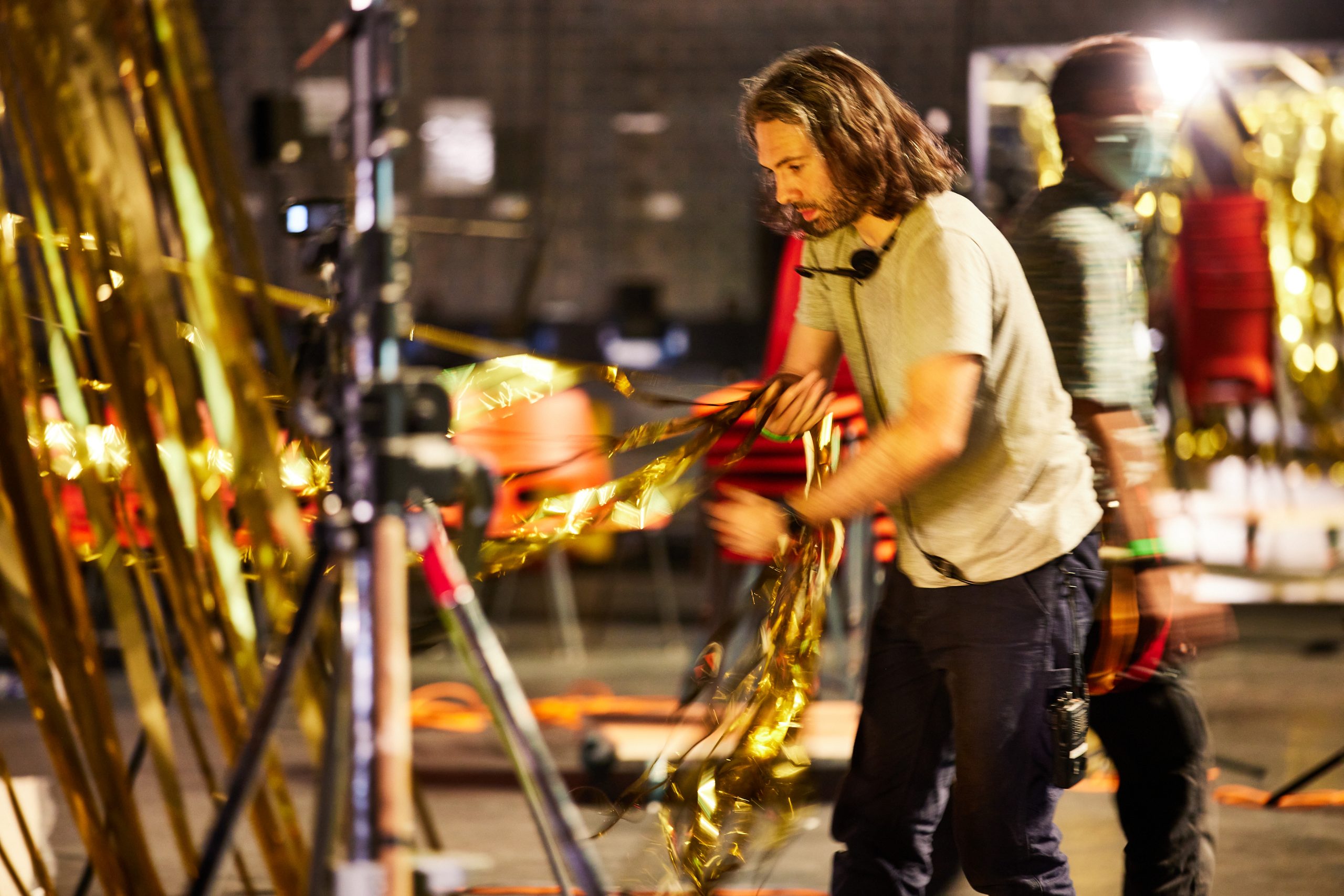Ahead of our Sat 24 Sep performance of 12 Last Songs by Quarantine (the opening event in our 22/23 Theatre Season) we caught up with Richard Gregory, creator and director of this very special durational piece.
What was the inspiration for creating 12 Last Songs?
It started pre-pandemic. I wanted to make something that invited people into a room who might not usually share a space together. I guess that’s been part of what we’ve tried to do with Quarantine’s work really for the past 24 years – we started in 1998. We decided to invite people in because of the work they do, because it’s a good way of curating a really diverse set of people and means that everybody there is an expert in their own field – and of course about their own life….. Then COVID hit and work became a hot topic – we all (briefly!) clapped for the NHS, we realised we really need supermarket staff and train drivers etc etc. Sadly some of that sense of people’s value seems to have left us pretty swiftly. But work remains such an important part of people’s lives – what we do and why, what we get out of it – and how it shapes the place we live in.
How did you first go around putting a show like this together? What gets planned/thought out first?
I tend to start with what sound like quite concrete concepts and then spend the process of making the work questioning that concept, pulling it apart, rebuilding it. Our work as Quarantine is hugely collaborative – we all have different skills and ways of working that we bring into the room. My job is to get things going, to try to make a space where people can work together creatively and then somehow hold it together.
With 12 Last Songs we began with the idea that we’d make something small and easily tourable – 3 people on stage, 90 minutes long… But as soon as we started inviting workers into the room to talk with us, we realised that we had to give people time, so that you get a fuller sense of who they are, a chance for the everyday, even banal stuff to sit alongside extraordinary experiences. The recognisable human experience in that is vital. So it became 12 hours long with 24 workers, 4 performers, 3 technicians and then the rest of the creative team. Not quite what we’d originally planned or budgeted for! But we’re really happy with it – so I’m glad we took the risk and allowed ourselves to be ambitious.
What should the audience expect, going into 12 Last Songs?
The most obvious thing is that they might well end up spending more time in the room than they’d imagined! Time flies by. They’ll be in the gallery at HOME but there won’t be any art on the walls. The work to look at will be 24 workers who, across 12 hours, do shifts where they come in and – where physically possible – demonstrate their work and talk about it – and about how they see themselves in the world. Most workers do an hour or two. Some, whose work takes more time – like a hairdresser or a chef or a painter & decorator – might do much longer. The workers get asked questions by one of our 3 performers in the room – the questions come from a text of 600 questions that talk about the shape of a day and the shape of a life. A fourth performer, Lowri Evans, will be out in the city finding places where people gather, and sending live video of Manchester back in to the gallery.
It’s important to say that we don’t know what the workers will say. We deliberately don’t rehearse with them at all – they aren’t actors, they aren’t pretending… So the content will be as much a surprise to us as it is to the audience. But I think somehow we manage to mage the whole thing feel welcoming, hospitable – for anybody. That’s important.
What do you want audiences to take away from the performance?
I always find this question the most difficult to answer – because honestly I really don’t know. There’s certainly no specific “message” – I don’t see that as part of my job on this. And of course I’ve no idea who the audience will be – so I don’t know what knowledge/experience/beliefs etc. they’ll arrive with. We don’t try to engineer our audiences – there’s something very uncomfortable in that. There are perhaps as many ways of interpreting 12 Last Songs as there are audience members…
I hope that people will appreciate spending time in a room with others that they might not usually spend time with. What they take from that is really none of my business…
What has been your favourite moment from a previous performance?
There’s always been this see-saw shift across the day, hour by hour, from very ordinary, everyday experience to moments of joy/hilarity/pathos/pain/beauty etc etc that I’ve really appreciated. But if I had to pin one moment down – a favourite amongst others – I’d say part of the evening in Brighton a couple of months ago when we had Calandra and Tim who run a sex shop in the city alongside Daisy, a nurse who’d worked in ICU at the height of the pandemic and, exhausted by it, had shifted to working in paediatrics. I think we’d been a bit concerned in advance that it might be an awkward juxtaposition or end up being really salacious. But all three of them were so open and honest – it became a really powerful conversation about love, in the broadest and deepest sense.
Book tickets for 12 Last Songs now:
Header image credit: Simon Banham
Other images: David Lindsay

